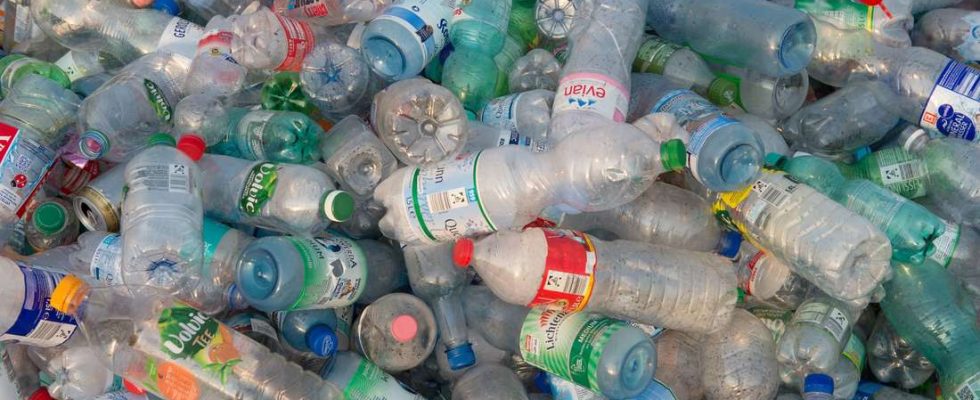Consumers have long been used to paying a 25 cent deposit for disposable bottles and cans. As of January 1, 2024, the deposit will be expanded to include dairy products.
Kassel district – The disposable deposit is being expanded: From January 1st, according to the German Packaging Act, milk, mixed milk drinks and all drinkable milk products that are offered in disposable plastic beverage bottles with a filling volume of 0.1 to 3.0 liters are subject to a deposit. The logo of Deutsche Pfandsystem GmbH (DPG) is emblazoned on them and a 25 cent deposit is due per container.
According to the DPG, the new regulation covers milk and mixed milk products with a milk content of at least 50 percent. The products affected include cocoa drinks, drinking yoghurts and kefir. Well-known brands of such products include Müllermilch and Nestlé.
Not without controversy: hygiene problems could arise due to milk deposits
However, the milk deposit is controversial. The Federal Institute for Risk Assessment (BfR) pointed out in a statement in 2003 that milk and milk products, unless they were ultra-highly heated, are highly perishable, non-sterile foods. “After opening and emptying the packaging, due to the relatively high viscosity of these high-fat products, significant amounts of food residue can remain in the packaging, which represents a very good breeding ground for microorganisms,” says the office. It must be ensured that no hygiene problems arise.
Retailers in the Kassel district are now also bearing the consequences. Although these are small, as Matthias Hofmann, market manager of the Edeka market in Zierenberg, says: “Hygiene questions don’t actually arise.” After all, the bottles are sealed. The only challenge now is to sell the old goods without the deposit logo.
Deposits on dairy products are new: “Some people probably won’t even notice”
At Anja Mohr’s Rewe store in Fuldabrück, employee Michael Tol is unsure whether all customers will even notice about the deposit change. “Some people probably won’t even notice and the bottles end up in the trash,” he says.
Sascha Baumann, owner of Drinks Baumann in Trendelburg from January 1, 2024, will probably accept the milk deposit bottles in his store, although legally he doesn’t have to. “I only have to accept what I sell because my market is under 200 square meters,” he says. He doesn’t sell dairy products. But he also takes back up to 20 of the PET bottles and cans that he rarely uses. (Paul Broeker)
What happens to remaining stocks?
There are no transitional regulations for the changeover to the new deposit requirement. Deutsche Pfandsystem GmbH (DPG) demands that there should be no food destruction or supply shortages in stores. However, the Federal-State Working Group on Waste (LAGA) promised the DPG that “enforcement would be carried out with a sense of proportion”. The sale of remaining stocks will probably be tolerated for an unspecified period of time.

